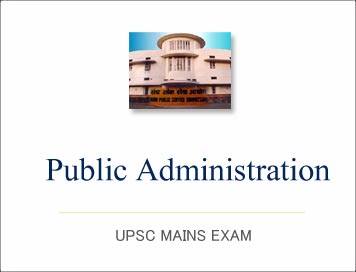(Online Course) Pub Ad for IAS Mains: Personnel Administration - Code of Conduct (Paper -1)

(Online Course) Public Administration for IAS Mains Exams
Topic: Development Dynamics: Personnel Administration: Code of Conduct
A high moral standard of conduct among the public servants must, there fore, be ensure, so as to set an example to the people at large. Officials are also vested with considerable power over the life and activities of the citizens and conduct rules are necessary to prevent the neutrality of the public servants is a fundamental requirement of the organization of the modern civil services and conduct rules are necessary also to ensure that. For these reasons, nowadays, all government’s employee.
Conduct rule for government employees generally relate to the following kind of matters:—
(i) Maintenance of correct behavior towards official superiors, and of
loyalty to the State.
(ii) Protection of the integrity of the officials by placing restrictions on
their engaging in private trade, or business, contracting of debts, acquisition
and disposal of property, etc.
(iii) The observance of a certain code of ethics in the official, private and
domestic life, and
(iv) Regulation of political activities of the public servants including pubic
speaking, writing in the press, and publication
The conduct rules may go beyond the country in placing restriction on the activities of the public servants. They may curtail their citizen rights in certain advantages and privileges not available to the ordinary citizen, there is nothing unreasonable in asking the public servant to submit to certain extra obligations which his position makes necessary. The restrictions imposed on a public servant by the conduct rules are not regarded as abridgement of his fundamental rights. In the words of Justice Holmes of the U.S.A. Supreme Court, ‘the petitioner may have a constitutional right to talk politics, but he has no constitutional right to be policeman.
Government Servants Conduct Rules in India
In view of the allegations of increased corruption and nepotism in the public services as a result of the conditions created by the war, Government Services’ conduct Rules have been considerably stiffened in India recently. As an example, the Revised All-India Services (Conduct) Rules, 1954 may be noticed briefly. The revised rules while incorporating many of the provisions of the older rules, included a few more relating in investments’ borrowing and lending by Government servants, engaging in trade or business, acquisition or disposal or movable and immovable valuable property, acceptance of gifts and presents, vindication of the acts and character of the members of the services, bringing of political or outside influence to bear on superior authorities to further ones service interest, and bimanous marriages.
